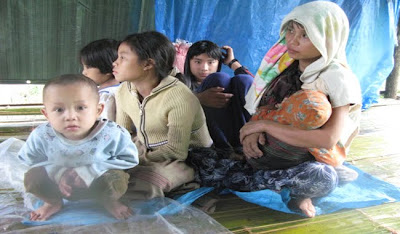Myanmar may have to leave ASEAN if it has nuclear plant
JAKARTA, Indonesia, Aug 8 (TNA) -- Myanmar may be forced to abandon its Association of Southeast Asian Nations (ASEAN) membership if it is found to have a nuclear reactor in the country, ASEAN Secretary-General Surin Pitsuwan said on Saturday.
So far there is no clear evidence that the Southeast Asian country, Thailand’s neighbour to the west, has such a facility but if it does, it will be forced to leave the organisation because operating a nuclear plant violates a regional pact which states that ASEAN will be a nuclear free zone, said Mr Surin.
Mr Surin was responding to Western media reports which said recently that impoverished Myanmar was building a secret nuclear reactor and plutonium facilities with the help of North Korea and aims to have a nuclear bomb in five years.
US Secretary of State Hillary Clinton during the ASEAN meeting in Thailand’s Phuket last month also warned about possible nuclear links between the two countries. She said the communist-state could be sharing atomic technology with military-ruled Myanmar which could pose a major threat to the region.
“ASEAN (government) leaders will have to jointly consider on the issue. If (Myanmar) is found guilty then it will be forced to leave ASEAN,” said Mr. Surin, adding that so far there is no sign that the country has built such facilities.
Myanmar along with Brunei, Cambodia, Indonesia, Laos, Malaysia, Singapore, the Philippines, Thailand and Vietnam are ASEAN members.
Touching on the court delay in issuing a verdict against Myanmar opposition leader Aung San Suu Kyi and two housekeepers following the May 3 incident in which American John William Yettaw allegedly swam across a lake to her home and stayed there for two days, Mr Surin said he believed the postponement probably so the verdict to be issued would not impact the feelings of the international community.
The verdict must be transparent before general elections, otherwise Myanmar authorities would not have reason to back their claims to the international community, and it would also put pressure on ASEAN, he said.
If convicted, Mrs Suu Kyi, a Nobel Peace Prize laureate who has been under house arrest since 1989 could face up to five years in prison, which would prevent her from participating the general elections that the junta has scheduled for 2010.
Myanmar court has postponed the verdict until Tuesday. (TNA)













